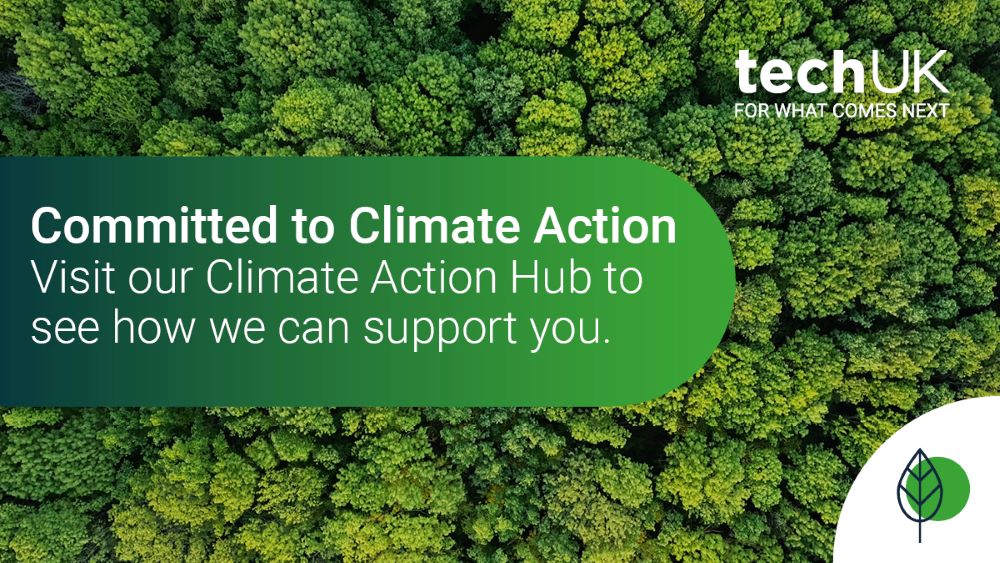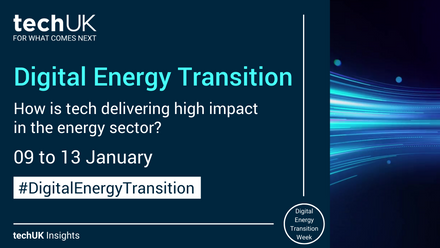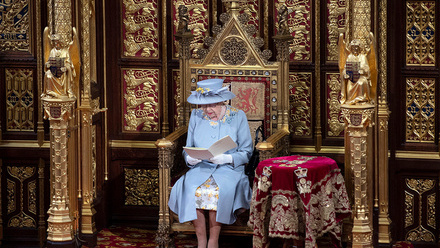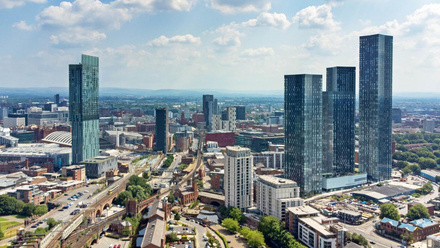Event Roundup: Sustainable Cloud: A Lifecycle Approach
On the 28th of February, techUK was pleased to host our very first cross-over event between the Cloud, Data Centres and Sustainability programme, “Sustainable Cloud: Design and Operation - A lifecycle approach”. This event examined the cloud ecosystem as a whole and explored a sustainability topic which has recently grown in the public consciousness, that of the carbon and energy demand impact of cloud services.
The event focussed on the perspectives of colocation data centre, large scale cloud service and software providers working on cloud sustainability. We were pleasantly surprised by the significant delegation that the event attracted, with around 100 in person attendees and many more online throughout the day.
Across the day, we were joined by an excellent cast of speakers and panellists who gave expert testimony on the context behind the sustainable cloud conversation, as well as some solutions and approaches that the sector can take to address their emissions. We view this as an important step in the conversation around sustainable computing and the role of digital services in the UK’s net zero journey.
Key Takeaways
The key takeaways from techUK’s perspective were emphasis on consumer behaviour in the cloud equation. Many of our speakers highlighted the dearth of so called ‘dark data’ that exists, is power hungry but which is never accessed. This can be pictures, files, video content, or anything else you care to imagine. Educating consumers on the energy cost of storing this data should drive behavioural change, however, hosting is a key function of these companies, and that can’t be ignored.
Moving away from so called “freemium” models of cloud, whereby customers can create new accounts to get a certain memory allocation for free before they pay, was recommended as a way of tackling the over-inflated storage requirements that cloud hosts are seeing.
Data centres also pointed out that their customers, the CSPs, often use their storage infrastructure sub optimally. It should be noted that, as standard in colocation set ups, customers have control over how their stacks are managed (cooled, run, upgraded). The management of stacks can be optimised for energy efficiency however, and the use of advanced smart hands and automation can save energy on the server and cooling sides of cloud hosting.
We were also invited to see inside the Government’s IT estate by a Defra official, which demonstrated some really important lessons on the issues of on-premise, and the work that is still required in the movement to cloud. It also demonstrated the limitations that commercial cloud sustainability initiatives can have when so much personal data is hosted in legacy and enterprise IT infrastructure.
Cyber security is a concern for public services wishing to move to the cloud, something that the sector must work harder to address in their messaging. Doing so would breakdown the silos and guarantee consolidations, making data infrastructure easier to decarbonise country wide.
To end proceedings, we had a discussion on how individual companies working in the cloud sector can take leadership on sustainability issues. It was posited that challenging the C-suite was key, and placing sustainability as a business goal, embedded in company culture was more effective than attempting to decarbonise elements of the business piecemeal.
Videos from the day
- Sustainable Cloud: Design and Operation Craig Melson – Introduction https://youtu.be/lxKJI2X3Z_Y
- Sustainable Cloud: Design and Operation Adrian Bradley, KPMG https://youtu.be/2OdSHlFzsY8
- Sustainable Cloud: Design and Operation Emma Fryer, Parner ERM https://youtu.be/nZpkUSHOd7I
- Sustainable Cloud: Design and Operation Steen Dalgas, Senior Cloud Economist, Nutanix https://youtu.be/rHXB73o3l4c
- Sustainable Cloud: Design and Operation - Adam Turner, Head of Digital Sustainability, Defra https://youtu.be/pz98NaJDvfE
techUK – Committed to Climate Action
By 2030, digital technology can cut global emissions by 15%. Cloud computing, 5G, AI and IoT have the potential to support dramatic reductions in carbon emissions in sectors such as transport, agriculture, and manufacturing. techUK is working to foster the right policy framework and leadership so we can all play our part. For more information on how techUK can support you, please visit our Climate Action Hub and click ‘contact us’.


Luisa C. Cardani
Luisa C. Cardani is the Head of the Data Centres Programme at techUK, aiming to provide a collective voice for UK operators and working with government to improve business environment for the data centres sector.

Chris Hazell
Chris is the Programme Manager for Cloud, Tech and Innovation

Craig Melson
Craig is Associate Director for Climate, Environment and Sustainability and leads on our work in these areas ranging from climate change, ESG disclosures and due diligence, through to circular economy, business and human rights, conflict minerals and post-Brexit regulation.








